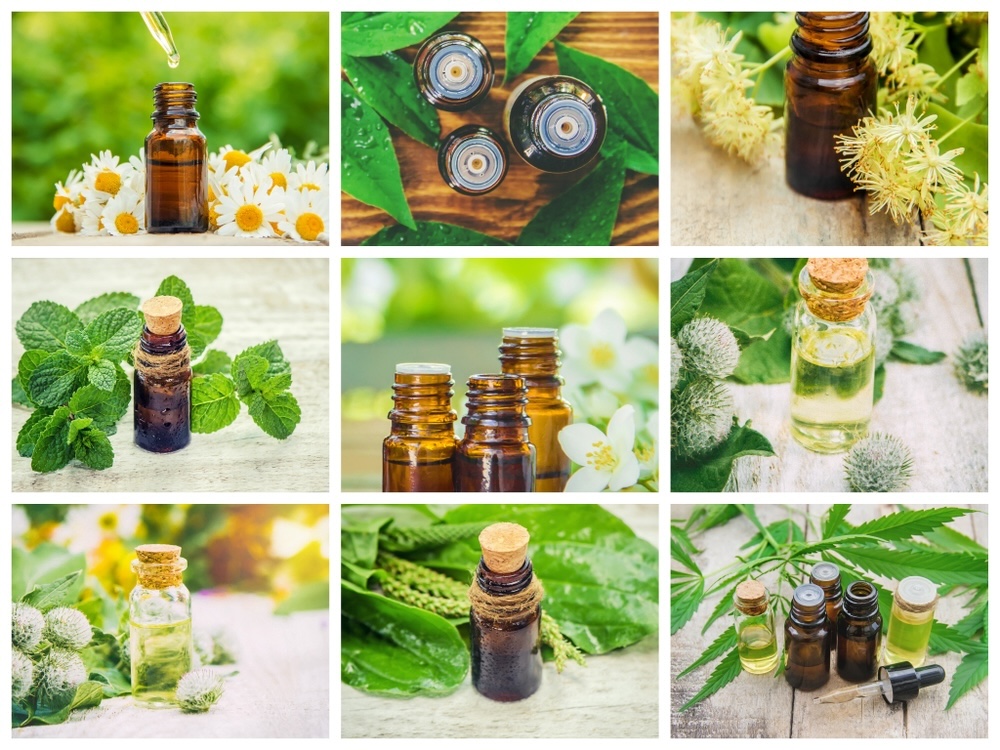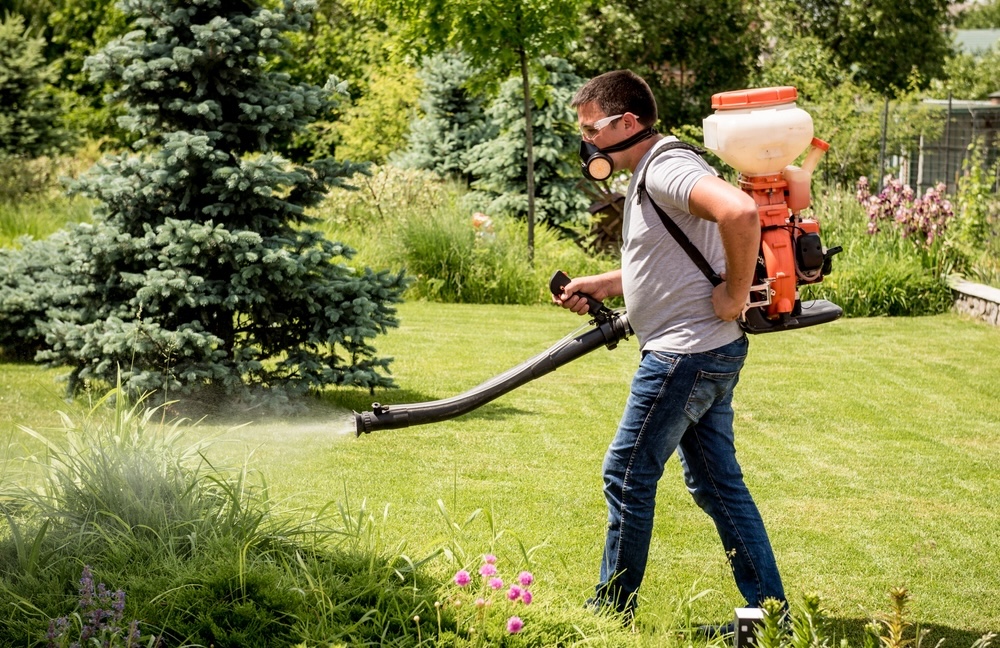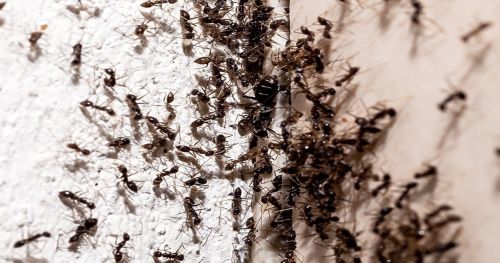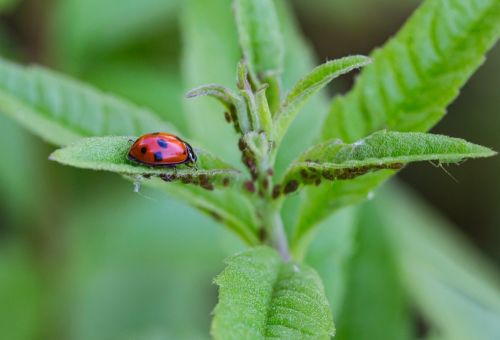Natural vs. Chemical Pest Control: Choosing the Right Method

When it comes to managing pests in your home, the decision between natural and chemical pest control methods is not just about eliminating unwanted guests; it's about choosing a strategy that aligns with your health, environmental values, and safety requirements. Each method offers distinct advantages and disadvantages that can significantly impact their effectiveness and long-term consequences for both your living space and the surrounding ecosystem.
In an era where health and environmental awareness is more critical than ever, understanding the implications of your pest control choices is essential. Natural methods are often celebrated for their safety and sustainability, while chemical approaches are valued for their efficacy and speed. This article delves into factual data and statistics to uncover the nuances of each method, providing a detailed comparison to guide homeowners in making an informed choice.
The significance of this choice extends beyond immediate pest elimination. The methods you choose can affect your home's overall ecological footprint, influence the health of its inhabitants, and even play a role in the broader environmental issues such as pesticide runoff and wildlife safety. With stakes this high, informed decision-making is crucial. Let's explore the data and insights that can help you determine the most appropriate pest control strategy for your home.
1. Understanding Natural Pest Control
Natural pest control refers to methods that employ organic substances, beneficial organisms, and physical barriers to manage pest populations without resorting to synthetic chemicals. These methods are favored for their eco-friendliness and minimal impact on non-target organisms.
Effectiveness: Natural pest control methods vary in their approach and effectiveness but can be highly effective when correctly implemented. Essential oils, for instance, are widely used due to their pest-repellent properties. Peppermint oil is noted for its efficacy against spiders, ants, and even mice. Tea tree oil is another powerful agent, known for its antifungal and antibacterial properties that deter many insects. Eucalyptus oil has been studied extensively and is shown to offer 100% repellency against mosquitoes for up to two hours, making it a preferred choice in mosquito management.
Biological control involves the use of natural predators or parasites to manage pest populations. This method is highly effective in agricultural and garden settings. For example, introducing ladybugs can significantly reduce aphid populations without the need for chemical sprays. Such biological methods are not only effective in reducing pests but also promote a balanced ecosystem. Research has demonstrated that using biological controls can reduce the dependency on chemical pesticides by up to 50%, highlighting its effectiveness and contribution to sustainable pest management.
Environmental Impact: Natural pest control methods are lauded for their low environmental impact. Unlike chemical pesticides, natural methods do not result in harmful residues or runoff that could contaminate soil and water sources. By avoiding synthetic chemicals, these methods help preserve biodiversity and protect non-target species such as pollinators and beneficial insects. Moreover, they contribute to the ecological health of the area, enhancing soil quality and supporting local wildlife.
Cost: While natural pest control methods may require higher initial investment or more frequent applications, they are often more cost-effective in the long term. The reliance on natural substances and organisms can reduce the need for costly chemical treatments and prevent the environmental damage associated with them, which could lead to expensive remediation efforts. Furthermore, by maintaining natural ecological balances, these methods can prevent future infestations, reducing the need for ongoing pest control and thereby saving money over time.

2. Understanding Chemical Pest Control
Chemical pest control involves the application of synthetic chemicals to repel or eradicate pests. This method is favored in many scenarios for its rapid action and high efficacy, which are essential in severe infestations.
Effectiveness: Chemical pesticides are known for their swift and potent effects. Pyrethroids, for instance, are a widely used class of insecticides that target a variety of insects, including ants, cockroaches, and mosquitoes. They function by disrupting the nervous systems of these pests, leading to quick extermination or repulsion. According to a 2019 study, more than 80% of homeowners found that chemical treatments were effective in controlling pest infestations. This high effectiveness makes chemical pesticides a go-to option in situations where rapid response is critical to prevent damage or health risks associated with pests.
Safety and Environmental Impact: While chemical pesticides are effective, their use comes with significant safety and environmental concerns that must be carefully managed. Human exposure to these chemicals, especially if not used strictly according to guidelines, can lead to a range of health issues. Respiratory problems, skin irritations, and neurological effects are common risks, and there is also potential for long-term health effects like cancer. Children and pets are particularly vulnerable to the adverse effects of pesticide exposure due to their smaller size and close proximity to treated areas.
From an environmental perspective, the impact of chemical pesticides can be profound. Pesticide runoff is a major issue, contaminating water bodies and leading to the pollution of ecosystems. This runoff can affect non-target species, leading to a decrease in biodiversity. For example, a 2021 environmental assessment highlighted a significant decline in bee populations directly linked to pesticide exposure. The loss of these pollinators can have cascading effects on food production and ecosystem health.
Cost: Chemical treatments generally require less frequent applications than natural methods, which can be seen as a cost-saving advantage. However, the economic savings might be offset by the potential costs associated with health care and environmental cleanup. The hidden costs of chemical pesticide use—such as the impact on public health systems and the potential need for remediation of contaminated environments—can make them more expensive in the long run.

3. Making the Right Choice
The decision between natural and chemical pest control is nuanced and should be tailored to the specific circumstances and priorities of each household. Here are the critical factors to consider:
Severity of Infestation: The extent and type of pest infestation can significantly influence the choice of pest control methods. For minor or localized issues, natural methods often provide a sufficient and safer solution. These methods can include using traps, essential oils, or introducing natural predators, which are less invasive and can effectively manage small-scale problems without the risks associated with chemicals. On the other hand, severe infestations that pose immediate risks to property or health might require the robust and quick-acting solutions that only chemical treatments can offer. Chemical pesticides can quickly reduce large populations of pests and are often necessary when immediate results are crucial to prevent damage or disease.
Safety Concerns: The safety of the occupants in your home is paramount. Natural pest control methods are generally preferred in households with children, pets, or individuals with allergies or respiratory issues. These methods are less likely to cause adverse health effects compared to chemical pesticides, which can contain toxins that might affect the nervous system, irritate skin, or exacerbate allergies and asthma. It’s important to use any pest control method responsibly and to follow all safety guidelines, particularly when chemicals are used, to minimize exposure and potential harm.
Environmental Impact: Choosing an environmentally friendly pest control method is increasingly important as awareness of ecological issues grows. Natural pest control methods are generally more eco-friendly, as they do not involve synthetic chemicals that can lead to soil and water contamination, or harm non-target wildlife such as bees, birds, and aquatic organisms. Furthermore, overreliance on chemical solutions can lead to resistance among pest populations, making future control more difficult and requiring even more potent chemical solutions. In contrast, natural methods tend to support ecological balance and sustainability.

Final Thoughts: Making a Responsible Choice
Choosing between natural and chemical pest control transcends the immediate concern of eliminating pests; it involves a series of thoughtful considerations about health, safety, and environmental stewardship. As we navigate the complexities of maintaining a pest-free home, it is essential to weigh the severity of the infestation against the potential risks and benefits of each method.
For homeowners, the decision-making process should include a thorough assessment of the household's needs—including the presence of children, pets, or individuals with health sensitivities. This ensures that the chosen method not only addresses the pest problem effectively but also aligns with the household's safety priorities. Additionally, considering the environmental impacts of our choices is crucial. By opting for methods that minimize ecological disruption, we contribute to a larger goal of environmental conservation.
In conclusion, the decision between natural and chemical pest control methods is not just about practicality but also about aligning your approach with broader health and environmental values. Whether you choose natural methods for their safety and sustainability or lean towards chemical options for their efficacy, it is imperative to make an informed, responsible choice that suits your specific situation and supports a healthier, more sustainable future.
Check more articles on our blog

Ants in the Walls: Identifying, Preventing, and Eliminating Hidden Ant Infestations

Tips On How To Get Rid Of Cloth Moths In Your Home

Natural vs. Chemical Pest Control: Choosing the Right Method
